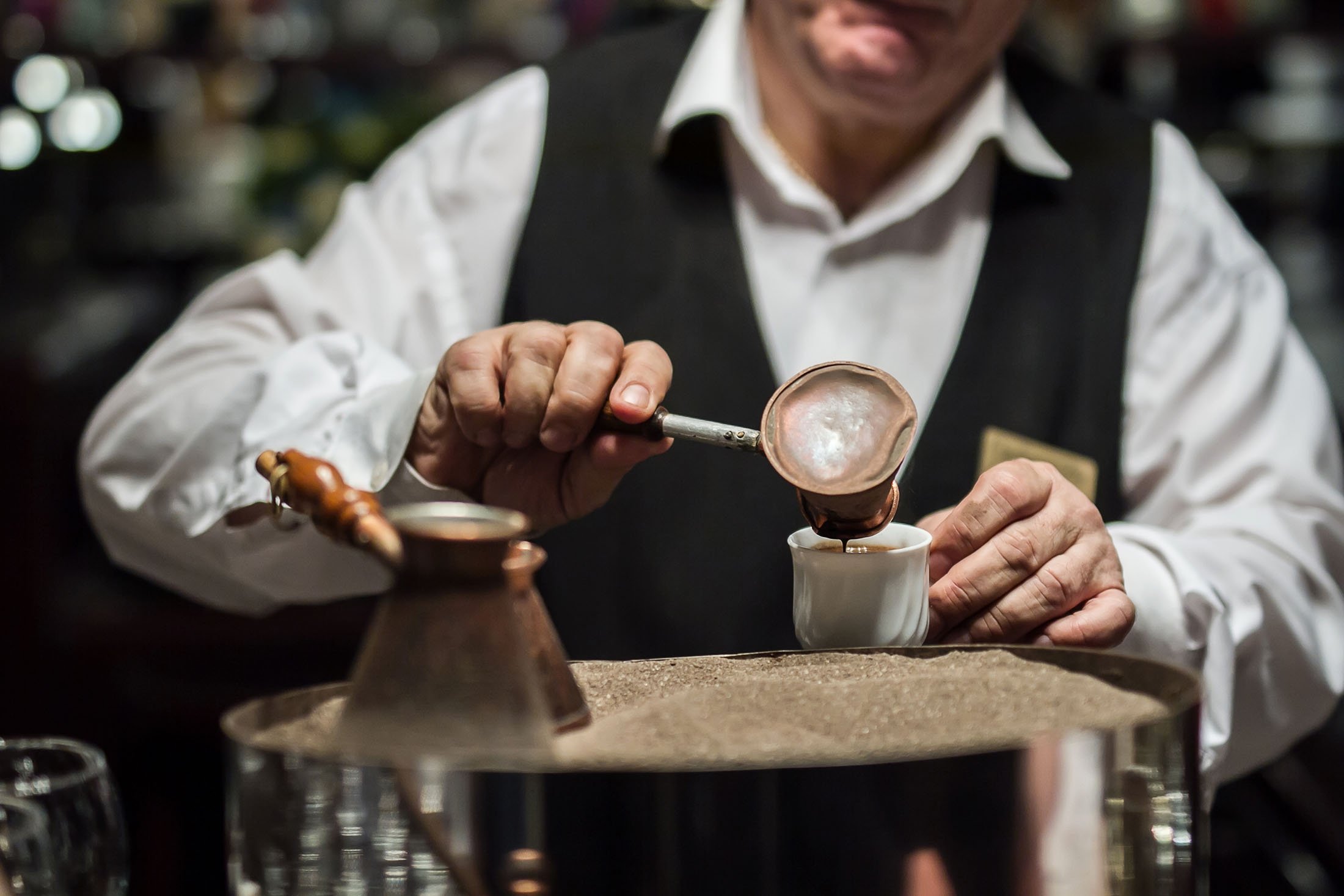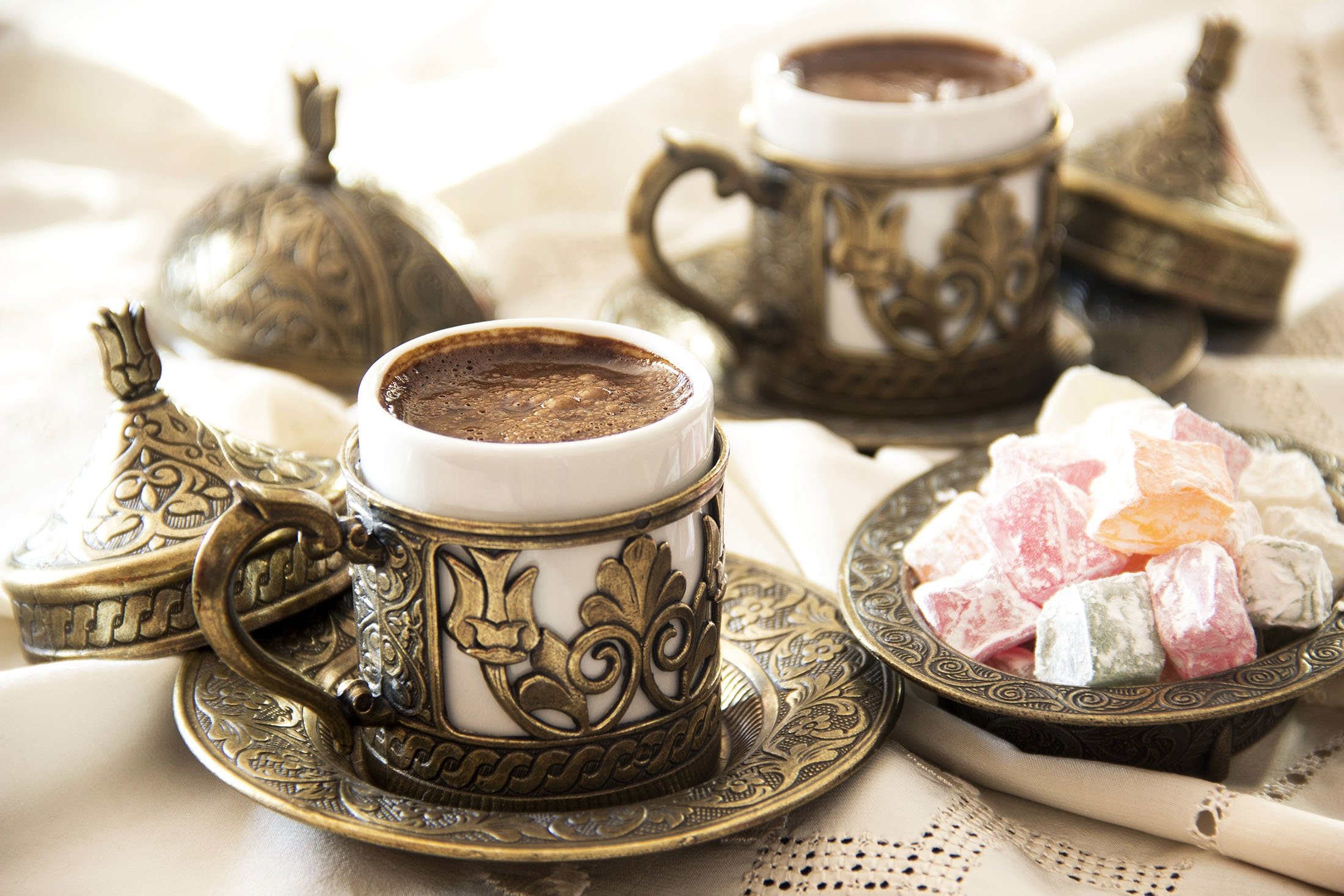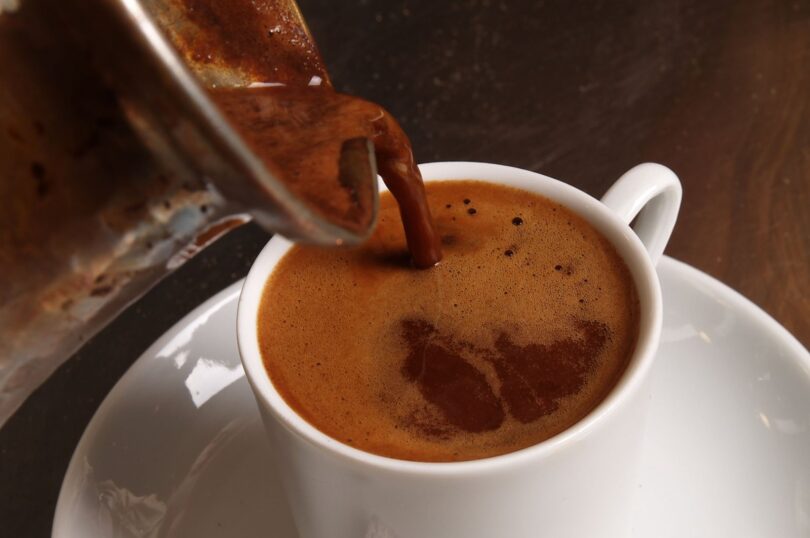Özge Sengelen
While sipping your Turkish Coffee, are you ready to read interesting and intriguing tidbits of information about this traditional and essential part of Türkiye, which reflects a culture on its own from its preparation to different ways of drinking it?
I thought about where to start writing this coffee guide full of exciting information that will accompany you as you sip your Turkish Coffee. If you ask why, Turkish Coffee can be the subject of a long conversation with its preparation, ways of drinking, and unknown facts about it. While sipping Turkish Coffee, I think I should start by talking about how and where this coffee comes from.
The emergence of Turkish Coffee, which takes its name from the cooking method invented by the Turks, coincides with the Ottoman Period. The spread of coffee to the world takes place after this period. Europeans also learned about coffee from the Ottomans and brought it to the Americas. For this reason, the equivalent of the word coffee in many languages is very similar to “kahve.” Dutch merchants introduced coffee as “koffie” and spread it worldwide. It is expressed as coffee in English and café in French, and all these words originate from the Arabic “kahva.”

During the Ottoman Period, the first coffee beans were brought to Istanbul by Yemen Governor Özdemir Pasha. The coffee beans brought to be discovered by the Ottoman Dynasty were cooked in jugs and cups and drunk in these as well. In this way, the famous form of cooking Turkish Coffee emerged and has survived to the present day, defying the years. The cooking technique is the most distinctive feature of Turkish Coffee that makes it different from other coffees. A beautifully roasted and very finely ground coffee is needed for a delicious Turkish Coffee. The coffee cooked in the coffee pot is served without filtering, with its grounds as part of it. The grounds sink to the bottom of the cup by themselves without the need to filter them. One of the most important details in Turkish coffee preparation is froth. The more froth on the Turkish Coffee, the better. In addition to providing a great visuality to the presentation of the coffee, the froth also ensures that the coffee stays hot for a long time.
Turkish Coffee is served in small cups like espresso, but it differs from espresso at some point in this regard. It is desirable to help yourself to Turkish Coffee cups in volumes ranging from 60 milliliters to 120 milliliters.
While thick-walled cups are preferred in Espresso, thin-walled cups are preferred in Turkish Coffee. Despite using a thin-walled cup, the coffee does not cool quickly. In addition, this type of cup cools the coffee more slowly and stays at a drinkable temperature until the coffee grounds settle to the bottom. On the other hand, Espresso is drunk in thick-walled cups that can lower the temperature quickly, since it is not ground coffee and must be consumed as it is prepared.

How do you prefer your coffee?
If someone is going to offer you coffee, be ready because, before the coffee, you will have a question. “How would you like your coffee?” Don’t worry; the answer to this question is straightforward. You have three options: unsweetened (“sade”), with moderate sugar (“orta şekerli”), or sweet (“şekerli”). A new one has recently been added to these answers: little sugar (“az şekerli”). Your answer depends on how much sugar you want to be added to your coffee. Then come the frothy coffees.
But I can’t help but say this. It is often very challenging for the person making the coffee if they are serving to a crowded group and every individual wishes for a different sugar amount. When the amount of sugar in each cup differs, coffee must be made separately for each person because sugar is not added to Turkish Coffee afterward. Coffee, water and the desired amount of sugar are combined and cooked together. Despite all the difficulties, I recommend you never give up on your choice because everyone has an unchanging coffee style.
Secrets of Turkish Coffee
I think this will be my favorite part of the article. If you are ready, I am revealing the intricacies of drinking Turkish Coffee and its many secrets.
Turkish Coffee is served alongside water in a tiny glass. According to a rumor, this is the most polite way to ask a guest if they are hungry. If the guest drinks the water before the coffee, they are hungry, and food is served first. If they drink the coffee first, it means that they have a full stomach and have decided to enjoy an excellent frothy Turkish Coffee over it.
According to some, the purpose of serving water with coffee is to drink the water before the coffee, to eliminate all other tastes in our mouth, and to feel the taste and flavor of coffee to the fullest.

You can see that Turkish delight is served from time to time alongside coffee. Again, according to a rumor, if the guest eats Turkish delight after drinking their coffee, they are pleased with their host. If they don’t eat it, the guest is not at all satisfied with the host.
Asking for a girl’s hand in marriage in Türkiye is almost always ceremonies where coffee is always served. It could even be called a ritual. Before the wedding, the groom-to-be and his family come to the bride’s house and ask for the bride’s father’s consent. In this ceremony, coffee is served, which is a traditional act. Sometimes, salt was added to the groom’s coffee instead of sugar in bygone times. In arranged marriages, the bride and groom, who have never seen each other before, see each other for the first time that day. If the bride-to-be liked the groom, she would add sugar to his coffee, and if she didn’t like him, she would add salt.
Today, this tradition continues, but as arranged marriages are no longer the norm, the ritual is continued as a well-intentioned joke. Brides-to-be add salt to the groom’s coffee, and the groom-to-be drinks this unpleasant-tasting coffee for the sake of love.
I hope your coffee is always sweet.

Did you know that Turkish Coffee and its many traditions, a culture in itself, about which there are so many stories and history, is included in the UNESCO Intangible Cultural Heritage Representative List? The anniversary of its addition to the list, Dec. 5, is celebrated as “World Turkish Coffee Day” every year.
After all these rumors, it is necessary to mention some scientific facts about Turkish Coffee.
Turkish Coffee has many health benefits when consumed correctly. It is said to positively affect cholesterol, blood sugar, digestion and blood pressure. Just as too much of anything is harmful, too much consumption can cause stomach aches and insomnia. Therefore, it is beneficial to consume in moderation.
It is said that good Turkish coffee should be prepared with cold water. For the coffee to stay hot for a long time, there must be foam. Of course, there are also tricks to making foam coffee. If you boil the coffee too much, the froth will go away. In addition, before pouring all of the coffee, you should divide the froth into cups so that the foam is soft and velvety for everyone.
By the way, Turkish Coffee is the only coffee served on its grounds.
Did you know that the word “kahvaltı” (breakfast) comes from Turkish Coffee? Kahvaltı is the name of the meal consumed as a preparation for coffee or as a base before coffee, which is usually drunk between morning and noon in Türkiye. The expression “kahve altı” (“meal eaten before coffee”) has evolved into the word “kahvaltı” over time. Drinking Turkish Coffee after breakfast is both a custom and a habit for many people in Türkiye.
There is always a reason to drink coffee in Türkiye. Sometimes, it accompanies the conversation of friends who meet after a long time, sometimes it relaxes people after a busy day, occasionally it shares your troubles or shares your joy, sometimes it is the most memorable treat you offer to your most special guests, and coffee is a must after a delicious meal. No matter how it is, sweet or not, it always tastes good and Turkish Coffee is unique for every moment.
So, how would you like your coffee?
Courtesy: Dailysabah







